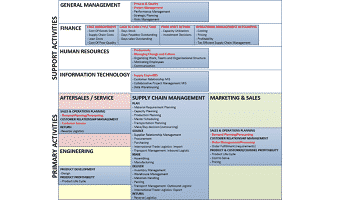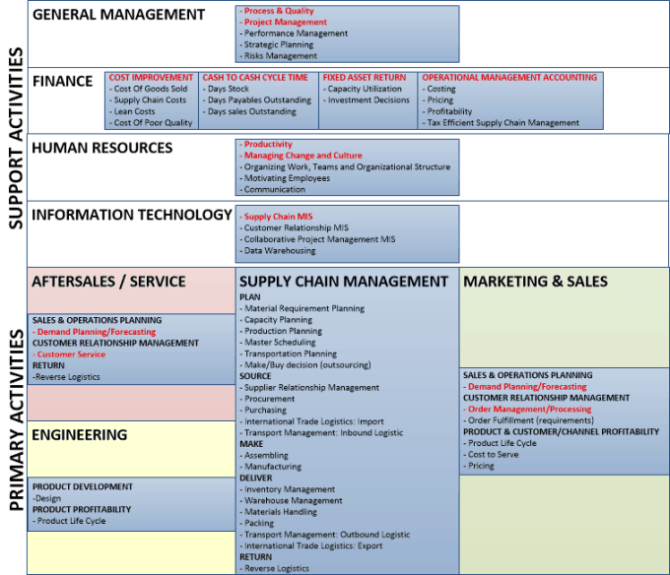- May 5, 2013
- Posted by: Javier González Montané
- Category: Supply Chain

The Value Chain tool (Michael Porter 1985) shows us the main activities of the firm. Those activities are separate in primary and support activities. If we analyze the primary activities, we can get the conclusion that primary activities are Demand Activities (Marketing, Sales and Service) and Supply Activities (Inbound Logistics, Operations and Outbound Logistics). We could say that Demand activities are CRM (Customer Relationship Management) processes and Supply activities are SCM (Supply Chain Management) processes. In fact, many IT companies define their ERP modules in that way.
Unfortunately, there are still many people who think about SCM as just day-by-day back office tasks (storage, import, purchase, and so on) or confuse SCM with Logistics. Indeed, SCM is one of the two main strategic activities of the company. SCM is a very strategic function because is the nucleus activity of the firm. I said nucleus activity because it is the link with all the areas of the firm and the external link with customers and suppliers.
You can see below an adapted value chain (engineering has been added because is important for manufacturing firms, and infrastructure has been removed) where you can see the important value untapped in many firms that SCM is able to deploy (blue background). Some of those activities are cross functional and responsibility must be shared with other departments. In red letters we can find SCM core functions that are shared with other areas of the company. For instance, cost improvements or cash to cash cycle time are financial ideas but the implementation use to happen in SCM. Other example could be change management: because an important proportion of the staff is SCM related, the materialization of change initiatives rely on SCM many times.
SCM Activities in the Value Chain

Thus, having a robust SCM function is a key cornerstone to compete nowadays. CEOs must realize of the full potential of having an important and integrated SCM function rather than breaking the SCM ideas in several departments with the risk of losing the power of integrated internal and external processes.
So can anyone say that SCM is less important than any other function?

